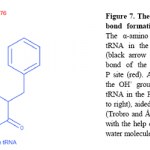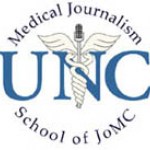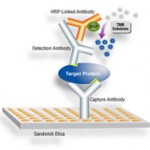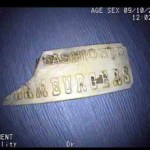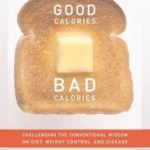
While many folks 'round these parts have been focusing on tweets and posts from the Society for Neuroscience meeting, several of our geology blogger colleagues have been at the annual meeting of the Geological Society of America (GSA).
Geobloggers rock and we've got a great outcrop at ScienceBlogs. They're usually really gneiss people and they don't take any schist from anyone. And while their ideas may not always hold water, they are quite often a gas. I really get a recharge out of them and their attitude is uplifting. Put simply, I am an alluvial fan.
I hope that she doesn't mind the…
Science journalist, Steve Silberman, just brought to my attention that Rob Walker at The New York Times wrote an article that last week on the method behind Pandora online radio. The article, The Sound Decoders at Pandora, made me go back through my archives to my own visit three years ago with Pandora founder, Tim Westergren.
Tim, together with musicologist Dr Norman Gasser, has applied science to music by cataloging songs based purely on musical attributes (over three dozen criteria) and providing the listener with a program of music similar to one's liking of a band or even a particular…
Rebecca Skloot, journalist, University of Memphis writing professor, and author of the upcoming book, The Immortal Life of Henrietta Lacks (pre-order here), just brought to my attention this commentary by Dr Pieter Cohen in the New England Journal of Medicine entitled, "American Roulette -- Contaminated Dietary Supplements."
In the commentary, Dr Cohen remarks upon the epidemic of adulteration of herbal and non-herbal dietary supplements with undeclared prescription drugs or unapproved drugs:
In July 2009, the FDA expanded its alert to include 75 tainted weight-loss products that contain…
The always-outstanding neuroblogger, SciCurious, put up an excellent post overnight on a presentation she saw at the current Annual Meeting of the Society for Neuroscience (SfN) in Chicago. Therein, she wrote about a poster presentation she saw on the relationship between iron, cholesterol, and Alzheimer's disease.
All was quite well until near the end of her post. That is where my writer's block of the last week dissipated and manifest itself as a blogpost-length comment.
This is a lovely post otherwise but you've obviously been drinking if you think you could get away with "an enzyme…
I can't believe October's here already and it's time again for our annual social media challenge to raise money for US science teachers. Last year, eight generous, erudite, and good-looking Terra Sig readers donated at total of $1,972 to impact the lives of 1,865 students.
I've got started a little late but three of you already hunted me down and have donated a total of $1,737 - due primarily to our perennial megadonor, Diana, who shares the good fortune in her life with kids to combat the anti-science nonsense she sees around this country.
DonorsChoose.org is "an online charity connecting…
This month, DrugMonkey is hosting the Diversity in Science Blog Carnival, started by DN Lee of Urban Science Adventures! to celebrate the scientific contributions of individuals from underrepresented groups. To celebrate US Hispanic Heritage Month, DM asked for us "to write and submit your posts in honor of scientists whose ancestors came from Spain, Mexico, the Caribbean and Central or South America."
One of the greatest rewards of being an academic scientist is watching remarkable people pass through your laboratory and classroom who then go on to do amazing things. Upon reading Drug's…
Welcome visitors coming from a recommendation by Dr Carmen Drahl at C&ENtral Science, the blog of the American Chemical Society's Chemical & Engineering News (C&EN):
Terra Sig has a fantastic post about the chemistry prize. The money quote: "If I see electrons being pushed around, it's chemistry."
Thank you for the kind words, Dr Drahl. New readers, feel free to weigh in down in the comments as to your take on this year's Chemistry prize.
The 2009 Nobel Prize in Chemistry has been awarded to three amazing scientists who elucidated the chemical bond-by-chemical bond action of the…
The tweet came just about an hour ago announcing the well-deserved and much-predicted award of the 2009 Nobel Prize in Physiology or Medicine to Elizabeth Blackburn, Carol Greider, and Jack Szostak for their work on "how chromosomes are protected by telomeres and the enzyme telomerase."
I wrote about this team and their accomplishments three years ago when the won the Albert Lasker Award for Basic Medical Research, considered the "American Nobel."
I said then:
Most cancer researchers, biochemists, and cell biologists know all three of these outstanding researchers. While I can't claim being…
The Clinical and Translational Science Network (CTSciNet) section of Science Careers has just published a superb article by Karyn Hede on the issues of depression precipitated during the rigors of medical education. Hede is a freelance writer in Chapel Hill and has contributed before to Science Careers, particularly with this article on the challenges of women MD-PhDs and another on why so many of us have crappy interpersonal and lab management skills.
The current article focuses primarily on the medical profession given its placement in the clinical/translational section but these issues are…
I can't believe October's here already and it's time again for our annual social media challenge to raise money for US science teachers. Last year, eight generous, erudite, and good-looking Terra Sig readers donated at total of $1,972 to impact the lives of 1,865 students.
DonorsChoose.org is "an online charity connecting you to classrooms in need." I wrote about Terra Sig's support last year and you can read my personal statement about Why We Donate to DonorsChoose Projects.
For example, my heart was broken last year when I read of a project for students a mere 35 miles from a major state…
Here's a new tenure-track faculty position just posted at Science. A great position in a great department at a great school in a great place to live. IMHO, of course:
The University of Colorado Denver
Department of Cell and Developmental Biology in the School of Medicine
We invite applications for an Assistant Professor faculty position in the areas of cellular and molecular biology, broadly defined. Successful candidates will be expected to establish a vigorous, innovative and independent research program and participate in teaching. They will join a highly interactive, interdisciplinary…
When writing the other day about how blogging has been of benefit to my career, I neglected to mention my recent invitation to the board of Science Communicators of North Carolina (SCONC).
Founded in June 2007 by Karl Leif Bates and Chris Brodie, and now headed by President Ernie Hood (Radio In Vivo), SCONC is a group of "science writers, journalists, public information officers, teachers and institutional communicators from academia, government labs, industry, museums and schools -- just about anyone interested in communicating science," who aim to improve public understanding of science…
I'm happy to report that Drugmonkey will be hosting the next installment of the Diversity in Science Carnival.
So I ask you to write and submit your posts in honor of scientists whose ancestors came from Spain, Mexico, the Caribbean and Central or South America. Submissions can be submitted through the submission site, emailed to me (drugmnky AT the googly one) or left as a comment after this post. The last day to submit is Oct 9 so I can get these out in the last week of the celebration. Happy Writing!
The carnival was launched by DN Lee of Urban Science Adventures for Black History…
This morning, I once again get to join in with a group of noted journalists, authors, educators, and all-around people-who-do-things-I-can't for the annual advisory board meeting of the M.S. in Medical and Science Journalism Program at the University of North Carolina at Chapel Hill's School of Journalism and Mass Communication.
Program founder and current director, Tom Linden, MD, is a Yale- and UCSF-trained physician-journalist with extensive broadcast experience across a series of California television stations. Dr Linden also recognized very early the potential value and pitfalls of…
Question for the lab geeks out there regarding general methods for antibody detection of specific analytes in cells, serum, and urine.
Do you have a favorite book, chapter, or any other reading material that you would use to guide students through designing and validating their own ELISA for a serum or urine protein? If you have any lecture slides you use and could share, I'd be happy to credit you. Some famous guy(s) gave me his H1N1 slides last year and helped me look like a genius.
I know that it takes a mighty, mighty fine antibody to do this relative to one for an immunoblot or even…
As state university systems are making budget cuts and furloughing professors while have to expand course sections to meet burgeoning enrollment, one solution may be to tap the expertise of retired professors in the area.
The Research Triangle area of North Carolina, home to over a dozen colleges and universities, is also home to at least 600 retired professors.
This morning, Eric Ferreri of the Raleigh News & Observer, one of the best higher-ed reporters in the biz, reports on the offers from very accomplished profs who want to give back to their community and the relative lack of…
I'm not drinking these days but scribbler50 at Behind the Stick is still my favorite bartender.
This week, it may be the Devil or it may be the Lord, but you're gonna have to serve somebody.
Yea verily, go forth this morning and read.
Prof Tara Smith thought it important enough to come back from her hiatus to explain why she's doing the same for her kids.
That's why.
Addendum (20 Sept 2009): In my rush to put up a very quick post on Friday, I just saw that Revere at Effect Measure put up a detailed post on why we should always get the regular seasonal flu vaccine regardless of the current H1N1 pandemic.
From today's article by the always-interesting Sarah Avery at the News & Observer:
After several failed attempts to extract the item, Manley was referred to another doctor, who suggested removing the entire left lung. "I said, no, I wouldn't be doing that," Manley says.
That's when he decided to seek a second opinion at Duke University Medical Center.
We've heard of "hot tub lung" and "popcorn lung" but my chest hurts just thinking about "jagged, fast-food implement lung."
If this case does not make it into the New England Journal of Medicine, I will be disappointed.
Photo credit: Duke…
If you are in the area, this looks really good:
Award-winning author Gary Taubes will speak at next week's Duke Clinical Research Institute (DCRI) Research Conference:
"Why We Get Fat: Adiposity 101 and the Alternative Hypothesis of Obesity"
Tuesday, September 22, 2009
12:00 noon to 1:00 pm
North Pavilion
Lower Level Lecture Hall
Gary Taubes is the author of Good Calories, Bad Calories: Challenging the Conventional Wisdom on Diet, Weight Control and Disease (Knopf, 2007). He studied applied physics as an undergraduate at Harvard and has an MS degree in engineering from Stanford University…


